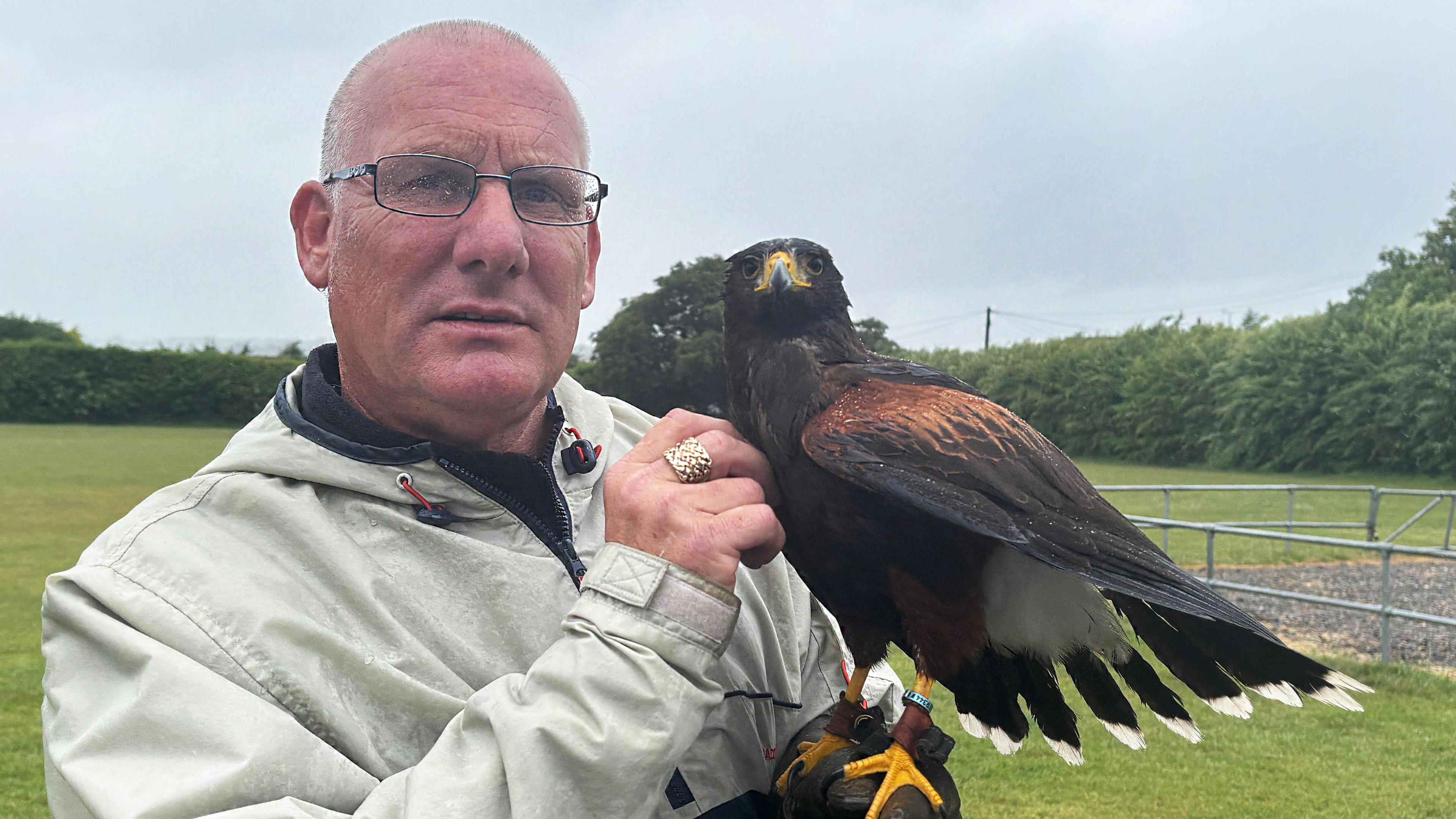Strong winds blow seabirds into landlocked county
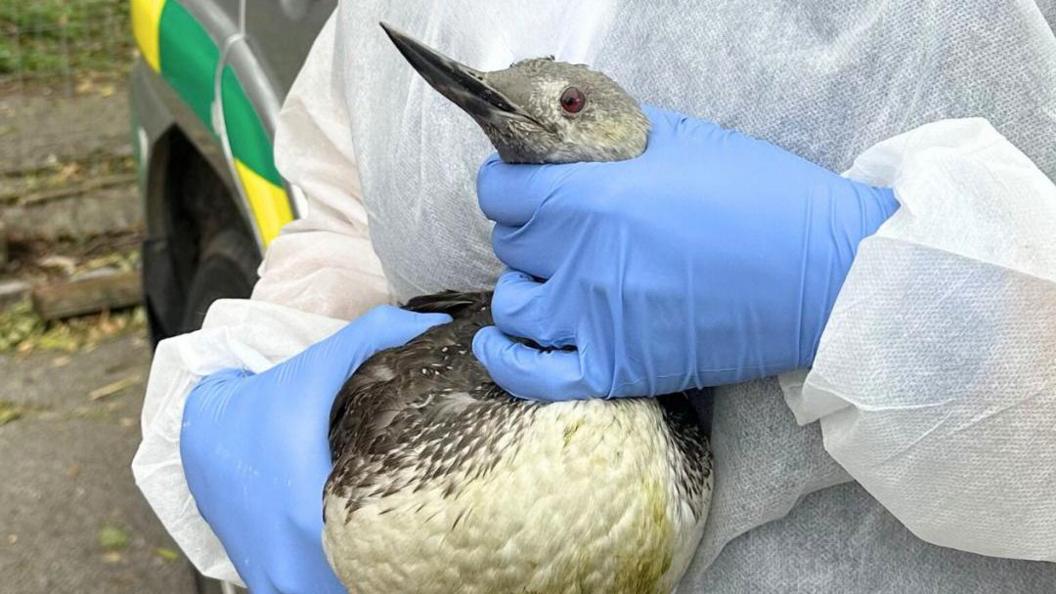
The red-throated diver was restored to health before being released at the coast
- Published
A fourth seabird has been blown from the coast to a landlocked county in the space of a few weeks.
Tiggywinkles Wildlife Hospital in Aylesbury, Buckinghamshire rescued a red-throated diver found grounded in Wendover, about 70 miles (113km) from the sea.
It was nursed back to health with rest, rehydration and a diet of fish before being driven to the coast, where it was released.
The charity said it was "exceptionally unusual" for seabirds to be found in the area, blaming changing weather patterns and strong winds for blowing them off their usual course.
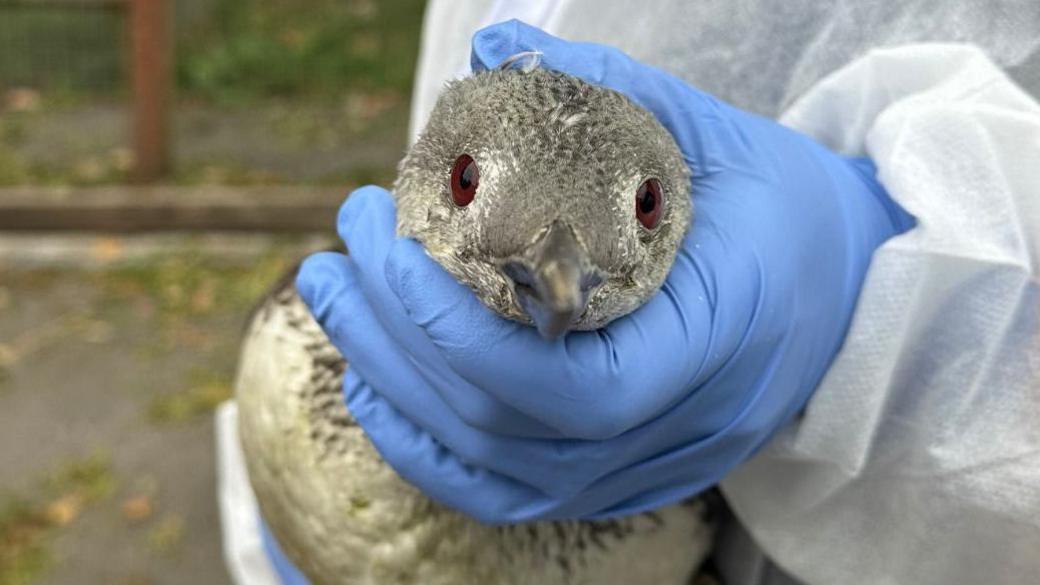
The charity has seen an increase in the number of seabirds blown inland
In a Facebook post, external, the hospital wrote: "These beautiful seabirds usually spend their time along the coast or out at sea, not in Wendover, Buckinghamshire - one of the most landlocked parts of the country!"
One of the other coastal birds to be rescued recently was a juvenile shag, discovered in a Hertfordshire garden after crashing into a window.
After being named Rocky, it was released at a reservoir following two weeks of care.
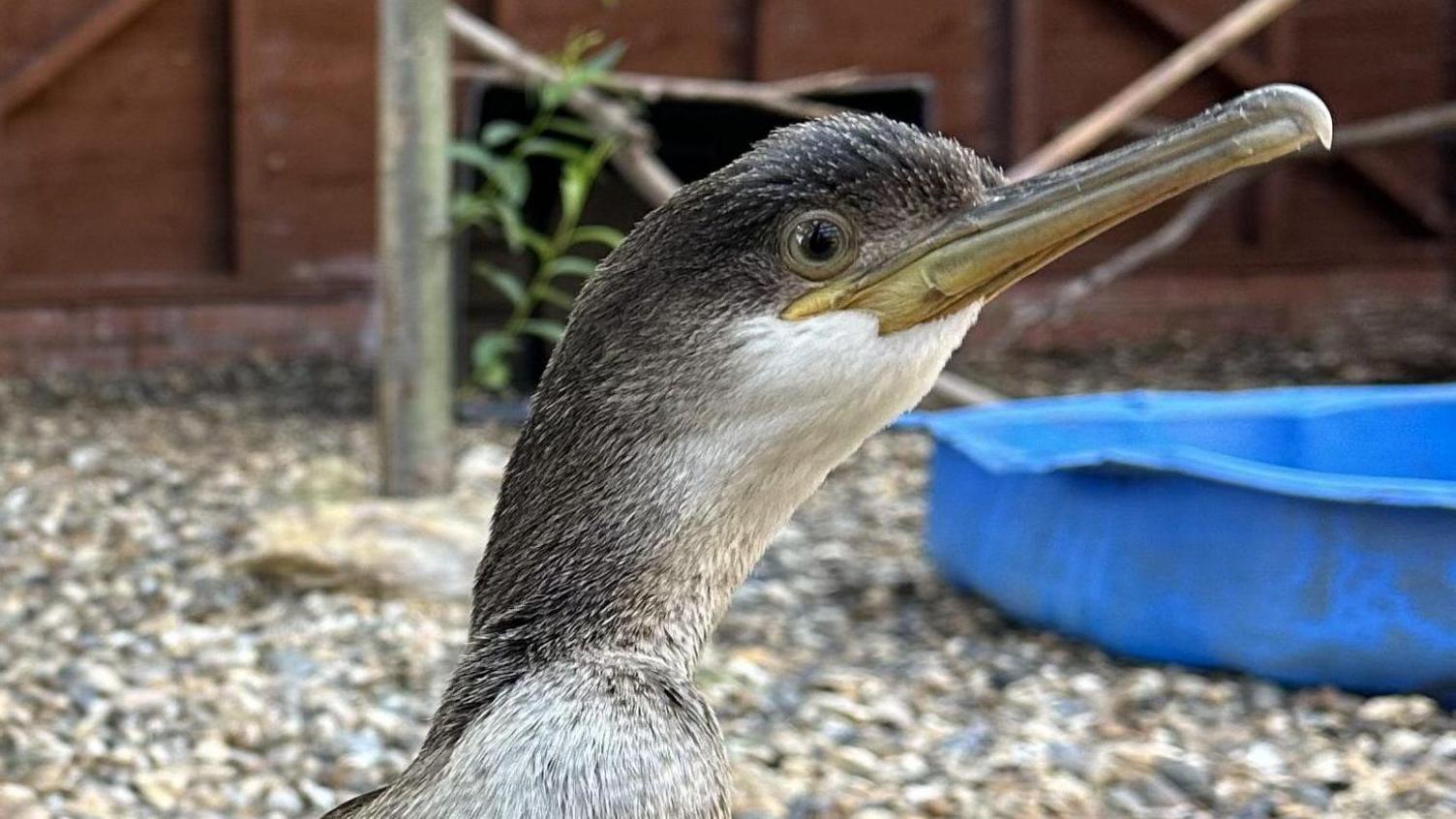
Rocky, a juvenile shag, was found after flying into a window in Hertfordshire
Head wildlife nurse Sharon Jacobs said: "While we do occasionally see the odd seabird admitted to Tiggywinkles, it's still a rare occurrence for us here in Buckinghamshire.
"To have four seabirds brought in within just a few weeks is exceptionally unusual, especially for such a landlocked county.
"These birds would not typically be found this far inland, which suggests that unusual weather patterns, food shortages or disorientation at sea may be driving them off course.
"By the time they reach us, they're often exhausted and in need of immediate care."
Get in touch
Do you have a story suggestion for Beds, Herts & Bucks?
Follow Beds, Herts and Bucks news on BBC Sounds, Facebook, external, Instagram, external and X, external.
- Published21 May
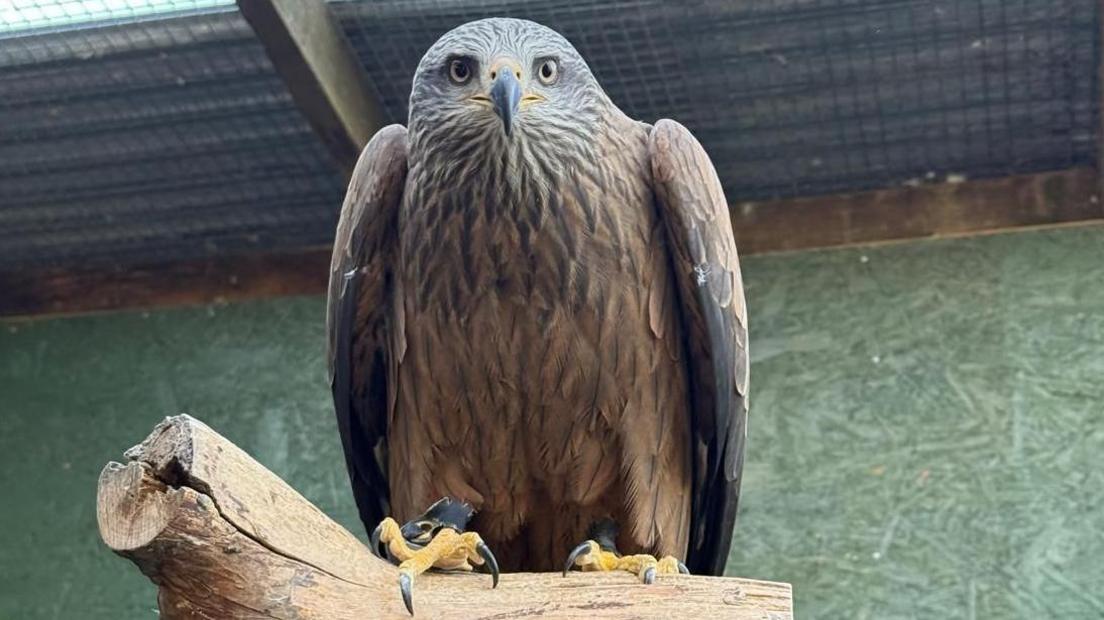
- Published15 October

- Published30 May
